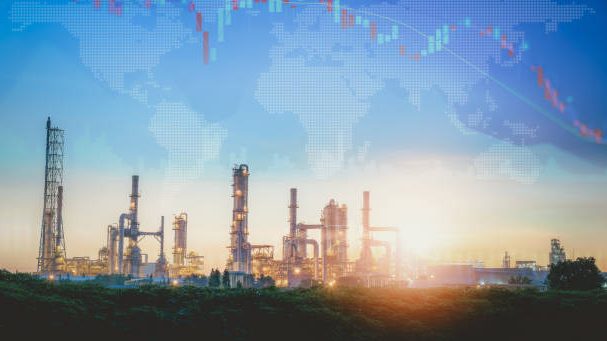Attendees at last week’s Arizona Manufacturers Council environmental issues breakfast heard from Erik Mason, global head of energy and supply trading for Nikola Motors, who discussed his company’s innovations in hydrogen and how hydrogen’s importance is growing in the energy sector.
Nikola moved to Arizona in 2020 and now employs more than 1,000 people. By 2023 the company expects to complete its manufacturing plant in Coolidge, Ariz., which will be capable of producing 30,000 trucks annually.
Through strategic partnerships, Nikola aims to ramp up production of both electric- and hydrogen-powered vehicles.
Nikola has partnered with Wabash Valley Resources in Indiana, which produces carbon-negative hydrogen at the lowest carbon concentration in the United States.
“Clean hydrogen is one of the most viable ways to lower emissions,” Mason said about the importance of hydrogen production.
Mason said hydrogen can be used to balance the electrical grid.
“You can produce a lot more hydrogen when there’s excess power during low power times and can be pulled out during peak power times,” Mason said. “This means that more power will be available during times when people are typically in residence and the efficiency of producing hydrogen power will be more.”
According to Mason, companies are testing the current pipeline infrastructure to examine at what density hydrogen can be safely blended with natural gas to deliver energy to homes and businesses.
Southwest Gas, Arizona’s largest natural gas utility, is testing hydrogen blending technology in a study partnership with Arizona State University to determine the safest and most environmentally effective hydrogen/natural gas blend percentage.
In order to create a more cost effective alternative energy source, companies like Nikola are looking to find more technology agnostic solutions. There is not a “one-size-fits-all approach” for producing hydrogen – various methods can be used depending on the resources available in the region.
In states like California and Oregon, the demand for net zero carbon emissions has driven the government to offer incentives to companies like the Low Carbon Fuel Standard that was designed to decrease the carbon footprint in the states.
According to Mason, the possibility of reaching net zero emissions in Arizona is, “going to be dictated by the government regulations and the market demand.”
Nikola plans to have a hub up and running in Arizona by 2023 that will produce and dispense hydrogen as an alternative energy source.
















Add comment